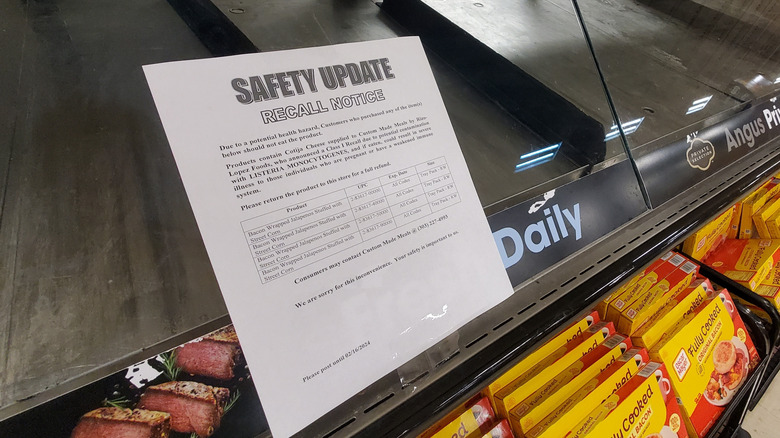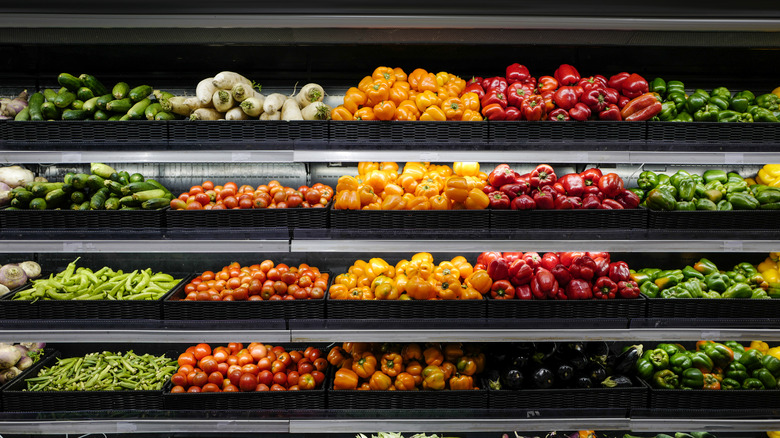What Do Grocery Stores Actually Do With Recalled Food?
While we may not personally experience them, grocery store recalls are a very real issue that affect local consumers and food manufacturers alike. Like when 160 thousand pounds of ground beef is recalled for E. Coli risk, you tend to hear about it even if it's not in your local store. But as widely known as they may be, not many people know what actually happens when groceries are recalled — much less what happens to the food itself.
In general, most foods get recalled for having hidden or undeclared allergens, dangerous pathogens — known as a Class One recall — or foreign material, all of which require food to be sent back to the grocery stores and removed from shelves. While the products are being removed from all portions of the manufacturing line, the product's Universal Product Code is also flagged, which helps identify who's purchased the grocery and needs to be contacted.
Unfortunately, once the recalled food is safely taken away from public consumption, the only thing to do is throw it away. That's right — even if it's just a labeling mistake — all recalled products are immediately trashed and sent to landfill, putting a lot of pressure on both retailers and grocery stores to stay ahead of recalls. Thankfully, this can be handled and prevented at multiple steps of the manufacturing process, all geared towards prioritizing public health and safety.
How do different stores handle recalls?
The other major part of recalls is notifying the public — both those who have already purchased the product and the general public. In a 2022 survey sent out to 50 of the largest grocery retailers, results showed that over half notify affected customers by phone or email within one business day. Other stores just rely on social media to notify their customers of recall, which is also the required method of communication for restaurants — hence why nobody got a personal call during the McDonald's onion E. coli outbreak.
There are certain stores, however, that aim to tell the public even before an official FDA announcement because they have early access to information from their manufacturers. Some of these retailers include Costco, Amazon, Food Lion, and Trader Joe's. Having direct access to their retailers allows products to be recalled quicker, which not only saves consumers from illness but helps send minimal food to waste as well.
In the case of smaller grocery stores, many will leave notices at registers as well as on local bulletin boards to inform consumers of the recall. The truth is, no form of communication is too small when it comes to spreading the word about product recall, especially when it comes to client safety. So, next time you hear about a recalled item, either return it to the store for disposal or throw it away yourself — the safest place for a recalled item is the garbage.


